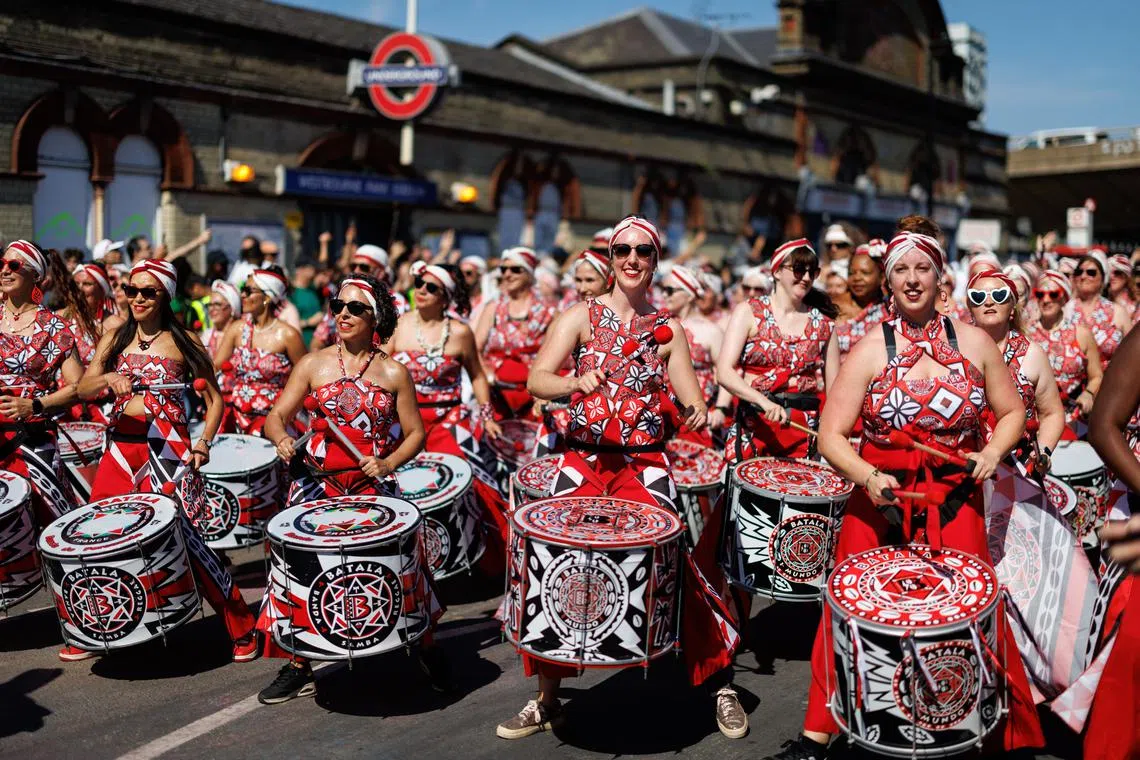London celebrates Notting Hill Carnival amid concerns over event’s future
Sign up now: Get ST's newsletters delivered to your inbox

Participants perform during the Notting Hill Carnival parade in London on Aug 25.
PHOTO: EPA-EFE
Follow topic:
LONDON – Revellers, dancers and musicians filled the streets of West London on Aug 25 for the annual Notting Hill Carnival, one of the world’s largest street parties that, despite its cultural prominence, has struggled with funding challenges.
The 57th edition of the carnival – which celebrates the city’s diversity and how generations of migrants and their descendants have contributed to British society – was expected to attract more than one million people.
The celebrations on Aug 25, the event’s third and final day, featured trucks draped in colourful materials carrying bands and sound systems playing soca and reggae songs, surrounded by people in bright festival costumes.
The carnival traces its roots to the hundreds of thousands of migrants from the Caribbean, known as the “Windrush” generation, who came to Britain between 1948 and 1971 to help rebuild the country following World War II.
Their arrival was accompanied by racial tensions and the unfair treatment of black people. For some, the carnival’s message remains as important today.
“Continuing to do carnival every year just reinforces the importance of equality and understanding everybody despite what background they’re from,” said Ms Jocelyn Kuyaziwm, 29, who was part of one of the carnival’s masquerade groups.
The carnival has been facing financial challenges, with its chair Ian Comfort telling The Guardian newspaper the event came close to not happening in 2025.
A review commissioned by the organisers highlighted safety concerns, particularly around crowd management, which required additional funding. There were also worries about violent incidents involving a small minority of attendees.
Just weeks before the event, nearly £1 million (S$1.7 million) in funding from the London mayor’s office and two local councils enabled it to go ahead, but concerns about its future remain.
Mr Kim Taylor-Smith, deputy leader of Kensington and Chelsea Council, said the extra funding his authority provided would apply for this year only. He called on the government to support the event financially.
Ms Cristianne Bukhari, 35, has been attending the carnival her entire life and said she has been frustrated that the authorities often fail to recognise the event’s importance.
“There are always going to be downsides,” she said. “But if you look around, there are people from all over the world – white, black, Asian – coming together and celebrating. We need more of this.” REUTERS

